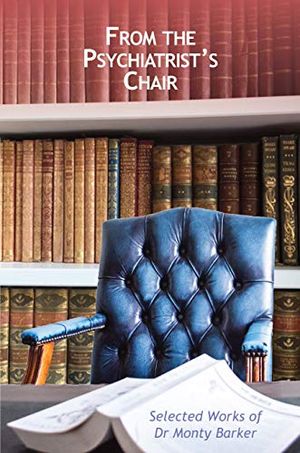This is a collection of essays by a Christian psychiatrist who originally delivered them as lectures, sermons and papers in different contexts.
There are twenty chapters, each of about ten pages, divided into different sections, reflecting its disparate genesis: the family, health, the workplace, the pastoral ministry and cross-cultural mission. Thus a wide range of topics are covered, with titles including: Making Good Parents; Avoiding Burnout; and Counselling in an Indian Context.
Several names such as Jim Packer, Michael Green and Rico Tice highly commend the help many received from Dr Barker’s ministry, and Glynn Harrison (a fellow psychiatrist who knew Dr Barker) provides a warm foreword. It is easy to understand their enthusiasm from the style and content of these chapters. They are clear, easy to read and show mature psychiatrically informed reflections on a range of topics laced with flashes of insight, sometimes provocative.
The chapter on Demon Possession and the Occult is the soundest piece I have read on this controversial topic, which is ironic since his widow in the introduction observes that many would disagree with it. This psychiatrist does not! Barker emphasises the limitations of Satan’s power and rightly comments: ‘I do not see any evidence in the New Testament to suggest we should seek for signs of possession. We should never suggest that a person is possessed’ (p.81). He criticises the works of Kurt Koch and others as not credible medically (I agree) and adds that his personal observations of cases of demon possession were all explicable in psychiatric terms (ditto for this reviewer).
There are two types of problem with the book. A minor irritation is the presence of medical errors, some of which may reflect the dates the pieces were originally written (today an assertion that all psychotherapies are equal is not supported by the accumulated evidence). There is a blunder about the pathophysiology of mood on page 61, which I think can only have arisen through errors in the publication process.
Second, comments suggesting the author supports female ministers/elders and does not support physical discipline of children are likely to be a concern for ET readers. He also makes worrying comments about Roman Catholicism: ‘it seems to me that Anglicans generally and Anglo-Catholics and Roman Catholics in particular are better off here than their Free Church brethren because their liturgy and the emphasis on the sacraments can help to carry the individual through a depressive illness’ (p.70). In context I understand the point that attendance at congregational worship for people with depression (and mental illness generally) is important, but the wording reflects a positivity about Romanism and sacramentalism which for some of us is not evangelical. Thus whilst this book would be stimulating and helpful for ministers and mature believers it is not recommended for Christians generally.
Professor Alan Thomas
Newcastle




